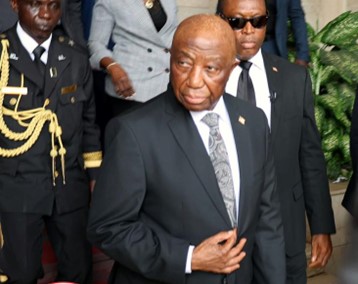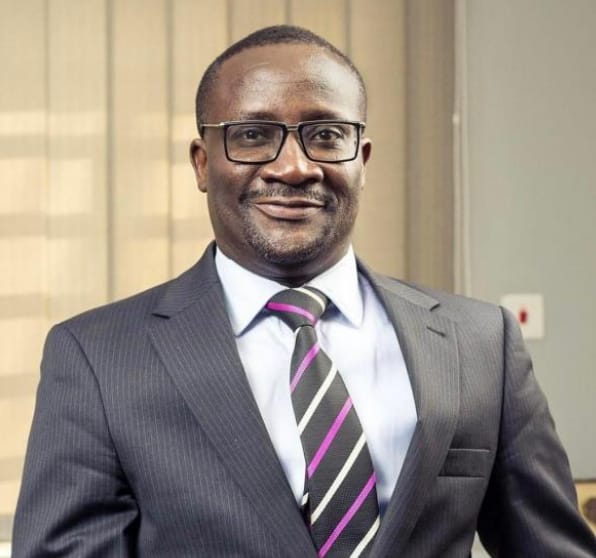ArcelorMittal Liberia is undisputedly recorded as one of the most dedicated foreign direct investments Liberia can boast of since the transition of the country from violent hostilities to post-conflict governance.
At the onset of Liberia’s transition in 2003, most of the socio-economic indicators of the war-torn nation were in wild descent; thus, leaving business tycoon Charles Gyude Bryant, the new consensus Chairman of the National Transitional Government of Liberia (NTGL), with little options for making any appreciable development impact on society.
Notwithstanding, the transitional administration would be remembered for a few bold moves, including, most prominently, securing a concession contract with global steel and mining giant, ArcelorMittal in 2005.
ArcelorMittal’s concession opened the way for subsequent inflow of many high-valued investments in Liberia, particularly after the country’s transition to democratic governance. Many local and international investment observers partly credited the increased investment inflow at the time to confidence created by entry of the big multinational player in the mining and steel industry.
The concession, given its global image risked it all and entered into an agreement with the Charles Gyude Bryant administration to completely revitalize Liberia’s iron ore sector and rehabilitate its broken rail infrastructure, at a time when no other business entity of relevance was willing to risk venturing into the volatile post-conflict country.
The presence of AML in Liberia did not only generate traction for other foreign investors to begin looking at possibilities in Liberia, but it also inspired hope for local Liberians scared by years of violent armed conflicts and social decadence.
Liberians could again seek and secure decent paid jobs and put the lives of their families back together.
The commencement of iron ore mining operations in Liberia was not like walking in a park, as mining infrastructures, including rails and ports, were hugely vandalized and scraped as a growing industry during the wartime. ArcelorMittal had to invest US$500 million dollars to restore and get those vital mining infrastructures operational again. Following the building of the mines and the restoration of the railway and port, it was not until 2011 that the company shipped its first iron ore consignment abroad through the port of Buchanan.
As AML took the eight years building homes for employees, constructing the mine and moving logistics between Buchanan and Yekepa, the company made no excuse fulfilling its financial obligations to the government and people of Liberia.
It paid in full all taxes, royalties, incentives. AML during this period paid all its corporate social responsibilities to the three affected counties (Bassa, Bong, and Nimba).
Even after it began to export iron ore out of Liberia about eleven years ago, it owes the government nothing in the form of royalties. In the midst of fulfilling all its financial obligations with the government, AML has demonstrated commitment to the people of Liberia by getting heavily engaged into activities that are beyond the MDA with the Government of Liberia (GOL).
The company has made interventions in education and health delivery as a leading investor in Liberia. For example, in last December, AML rehabilitated all feeder roads in Buchanan at the cost of more than US$260,000.
ArcelorMittal has provided streetlights for the port of Buchanan and Yekepa community, and quite recently launched a community development scholarship for hundreds of young Liberians from communities where it operates.
Outside of its MDA, AML unilaterally made available more than US$40 million for pavement of the road from Ganta to Yekepa, Nimba County. Construction has since began and now reached Nimba County capital city, Sanniquellie.
In Nimba alone, ArcelorMittal has paid more than US$700,000 to farmers for tree crops in its operation area, and spent thousands of dollars to acquire traditional land certificates to ensure landownership for communities in its operation area in Nimba. In addition, the company has assisted with the relocation of the GW Harley Hospital in Sanniquellie, and constructed more than 100 hand pumps in the affected communities in Nimba.
AML has expanded the capacity of its Yekepa Technical Vocational Training Center with an investment of US$8 million, training hundreds of the next generation of Liberians with the required skills in the mining industry.
It has helped expand the capacity of JFK Medical Center with additional capacity, supported the national county meet in the amount of over US$120,000, and recently made available US$25,000 to promote the Liberia Marathon.
It must also not be forgotten that the AML has recruited young professionals into the company’s workforce. AML recently mobilized highly motivated Liberians to acquire hands-on working experience at its facilities. It capped it up by recruiting these young professional into its works force.
These reasons and many more are sufficient motivation for Liberians to rally behind AML and engage with their leaders to pass the 3rd Amended Agreement of the company, because Liberians of all walks of life stand to benefit when the company expands and extends its MDA. The expansion will see the building of a new concentration plant in Nimba, which will create hundreds of new jobs.
Liberia as a country stands to benefit from more than US$60 million in taxes and royalties for intervention in strengthening the health sector, investing in building the quality of education and the provision of adequate and quality social services to the Liberian population.
ArcelorMittal’s expansion project stands out to be the single largest investment under President George Manneh Weah, with a total value of over US$1.2 billion. This would ultimately become the largest brownfield mining activity across all of West Africa.







